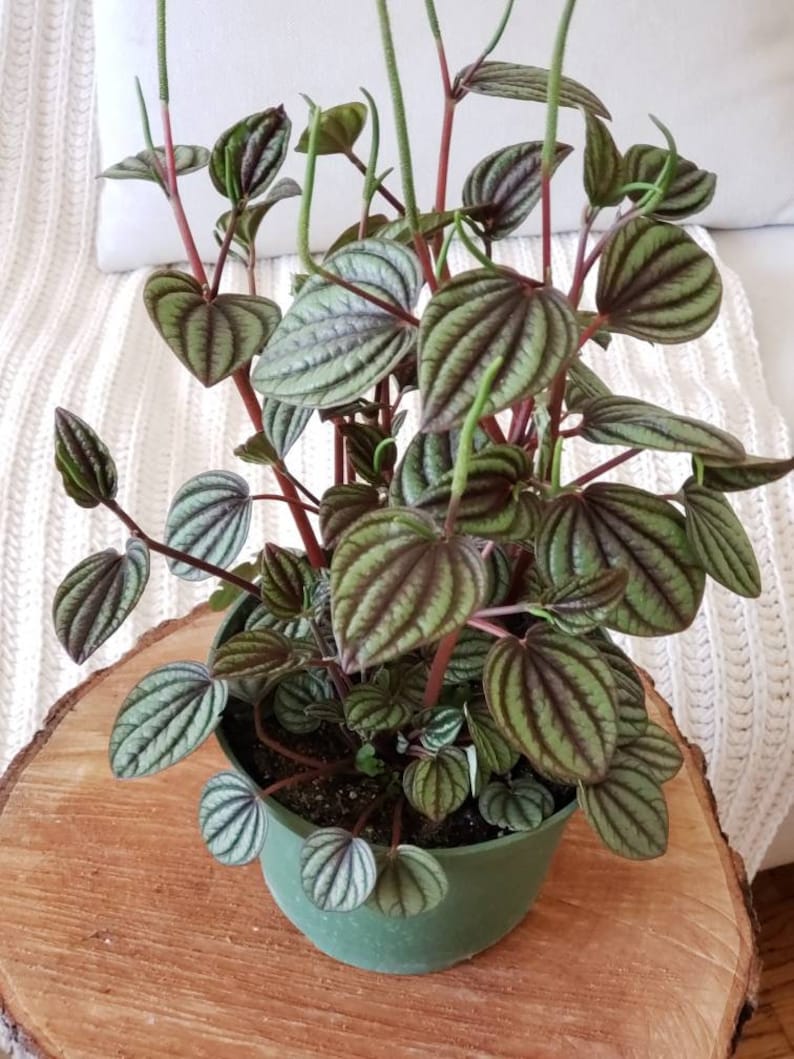
Peperomia Albovittata Piccolo banda Peacock peperomia in Etsy
Peperomia you know it's a huge genus with a wide range of looks and different levels of care needed. Peperomia albovittata 'Piccolo Banda' is more similar to other Peperomia such as Peperomia caperata than it is to the more succulent varieties like Peperomia obtusifolia. This type of Peperomia can sometimes be a little mysterious to both newbie plant parents and experienced plant parents alike.
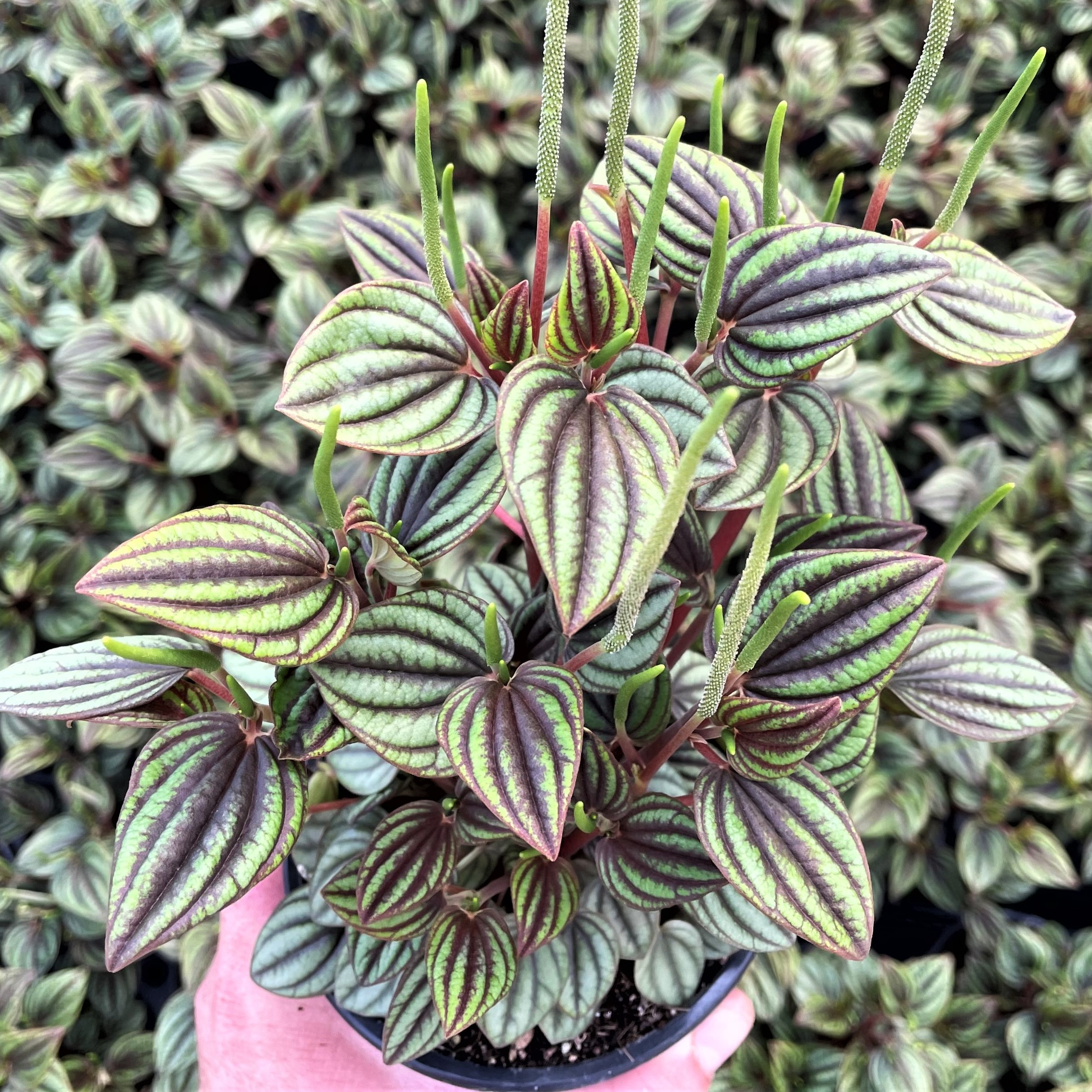
Peperomia 'Piccolo Banda' (4.5" Pot) Little Prince To Go
A pandemonium of parrots takes flight shortly before dark in the skies over South Pasadena. (KPCC file photo by Grant Slater) "One way or another, a sufficient number of these parrots got out in.
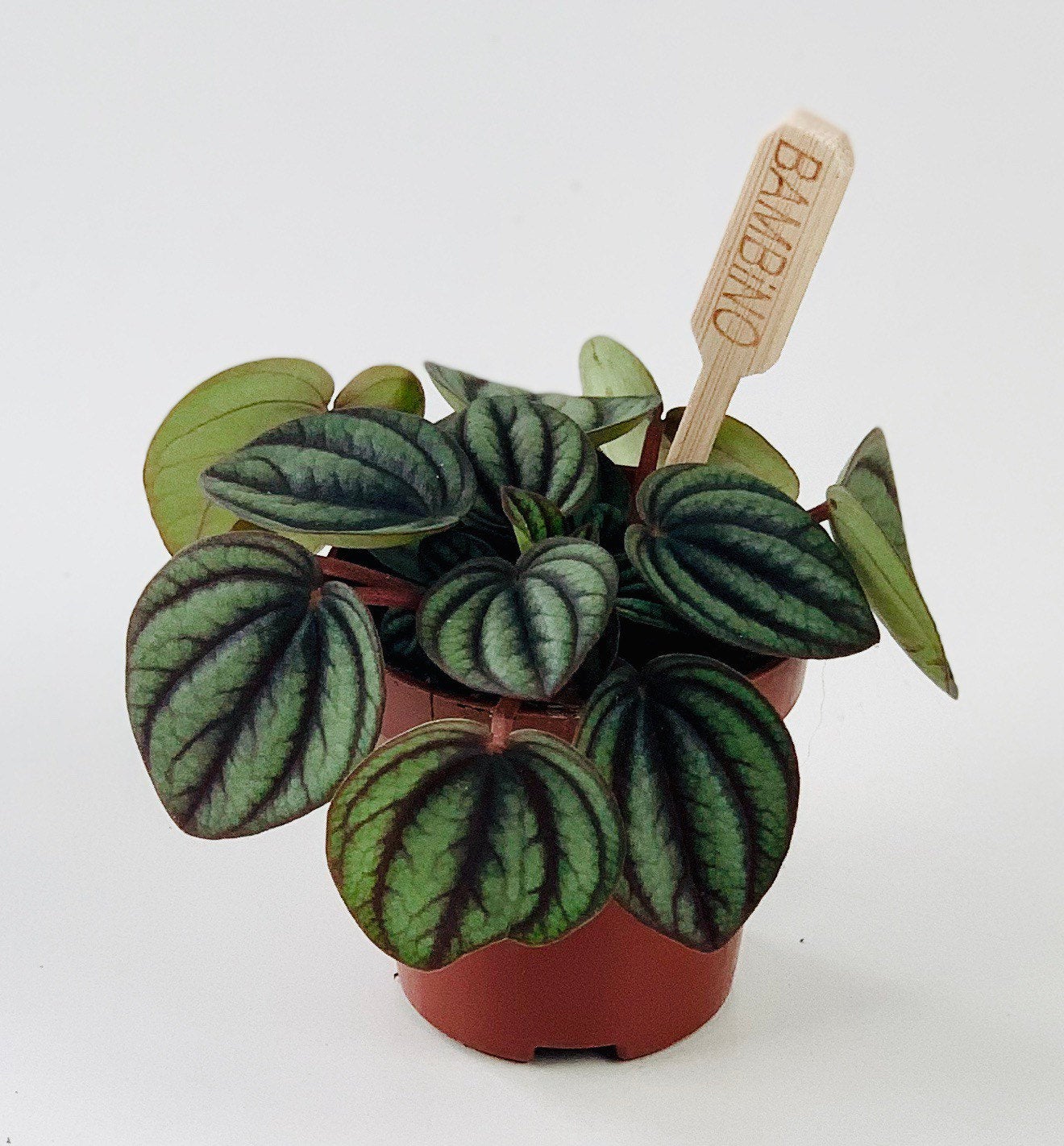
Peperomia Piccolo Banda Mini Plant HeyPlants
Characteristics. Scientific name and common names: Peperomia Albovittata, commonly called Piccolo Banda. Origin: Rainforests of South America. Indoor or Outdoor plant: Indoor. Height and Structure: 8 to 12 inches tall with full, dense foliage. Temperature: 65 to 75 degrees Fahrenheit. Peperomia Piccolo Banda Flower Color: Green or yellow spikes.

Peperomia 'Piccolo Banda', Peperomia 'Piccolo Banda' in GardenTags plant encyclopedia
Peperomia Piccolo Banda SOIL Requirements. Peperomia Piccolo Banda needs rich, well-drained soil.Acidic to neutral soil is suitable for them; therefore, use a peaty soil mix with added perlite and compost or worm castings in a ratio of 2:1. Peat moss will help retain the moisture level, and Perlite will help drain the excess water and better aeration whereas compost will provide nutrients to.
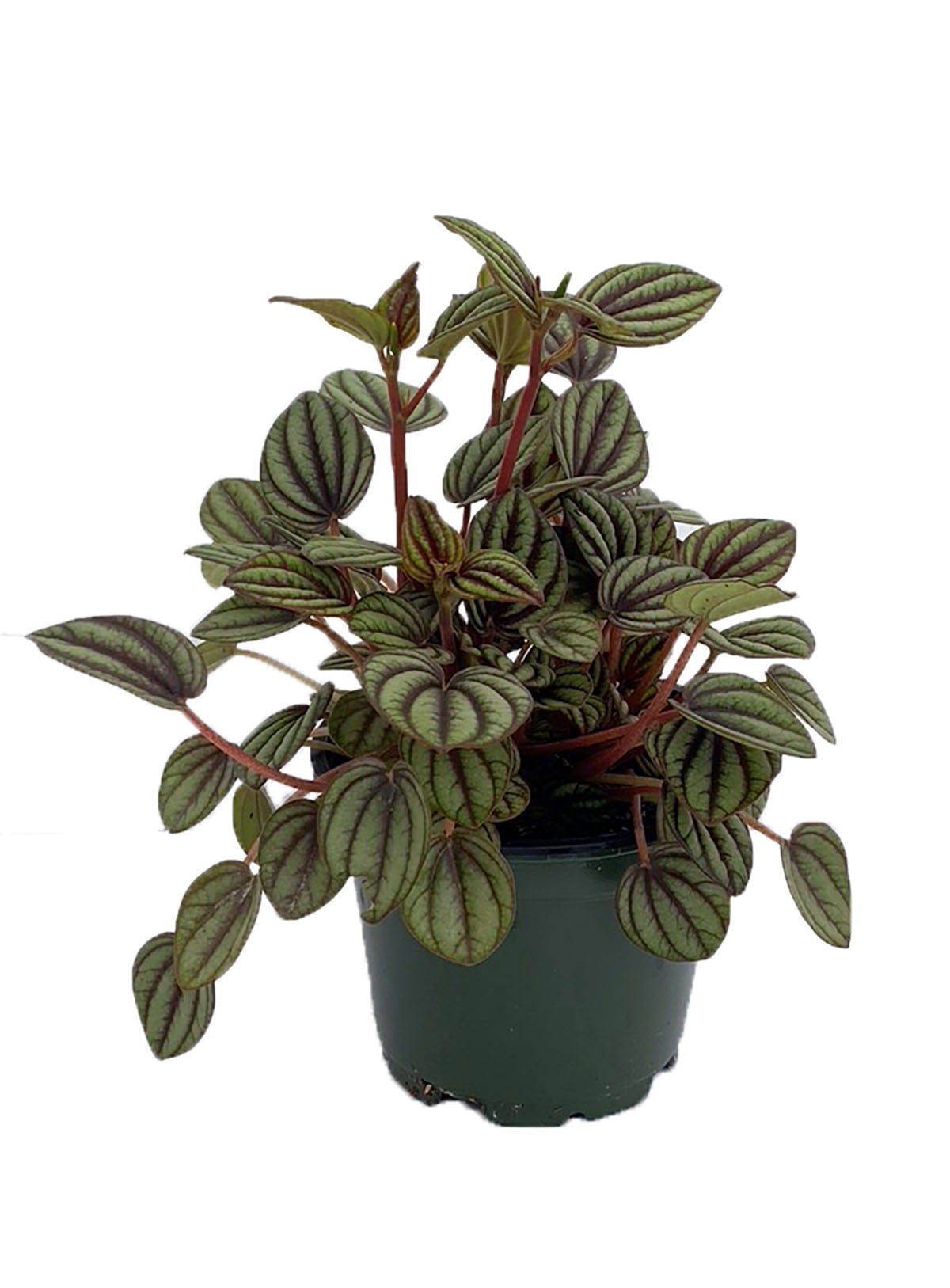
Piccolo Banda Peperomia Peperomia albovittata 4" Pot Easy to Grow
Peperomia Piccolo Banda is a beautiful indoor plant from the Piperaceae family. The beautiful fleshy leaves with silvery striped leaves against dark green to the purple surface are supported on thick reddish stems. The semi succulents are drought-resistant and low maintenance plants. Their ability to get along with partial shades and.

Peperomia Piccolo Banda is my 2nd favourite peps. Love how the leaves have this leathery feel on
The ideal temperature range for this plant is between 65°F to 80°F (18°C to 27°C). It is crucial to maintain a consistent temperature range to ensure the plant's health and growth. If the Peperomia Piccolo Banda plant is kept in conditions that are too hot, it can cause the leaves to wilt and turn yellow.

4" Peperomia Piccolo Banda Flowers Talk Tivoli
How to grow and maintain Peperomia Piccolo Banda: Light: It thrives well in bright light, but no direct sun. Best indoor location is a north or east facing the window. Thrives under fluorescent lights. Soil: It grows well in humus-rich, moist but well-drained soil or a peat based soil is best, 2 parts peat and 1 part perlite or sand is a good mix.

Peperomia Piccolo Banda Davenport Garden Centre
Peperomia Piccolo Banda is a relatively new addition to the Peperomia family and a welcome one too, with it's beautiful silver and green leaves and its classic compact Peperomia size, the Piccolo Banda makes the perfect desk plant. It's a plant that requires low maintenance but if you want to learn the ideal growing conditions then take a look at our Peperomia Piccolo Banda care guide.

Peperomia 'Piccolo Banda' 5"
Peperomia albovittata, also known as the Peperomia "Piccolo Banda" or "Piccolo Banda Peperomia," is a popular and visually appealing variety of the Peperomia.
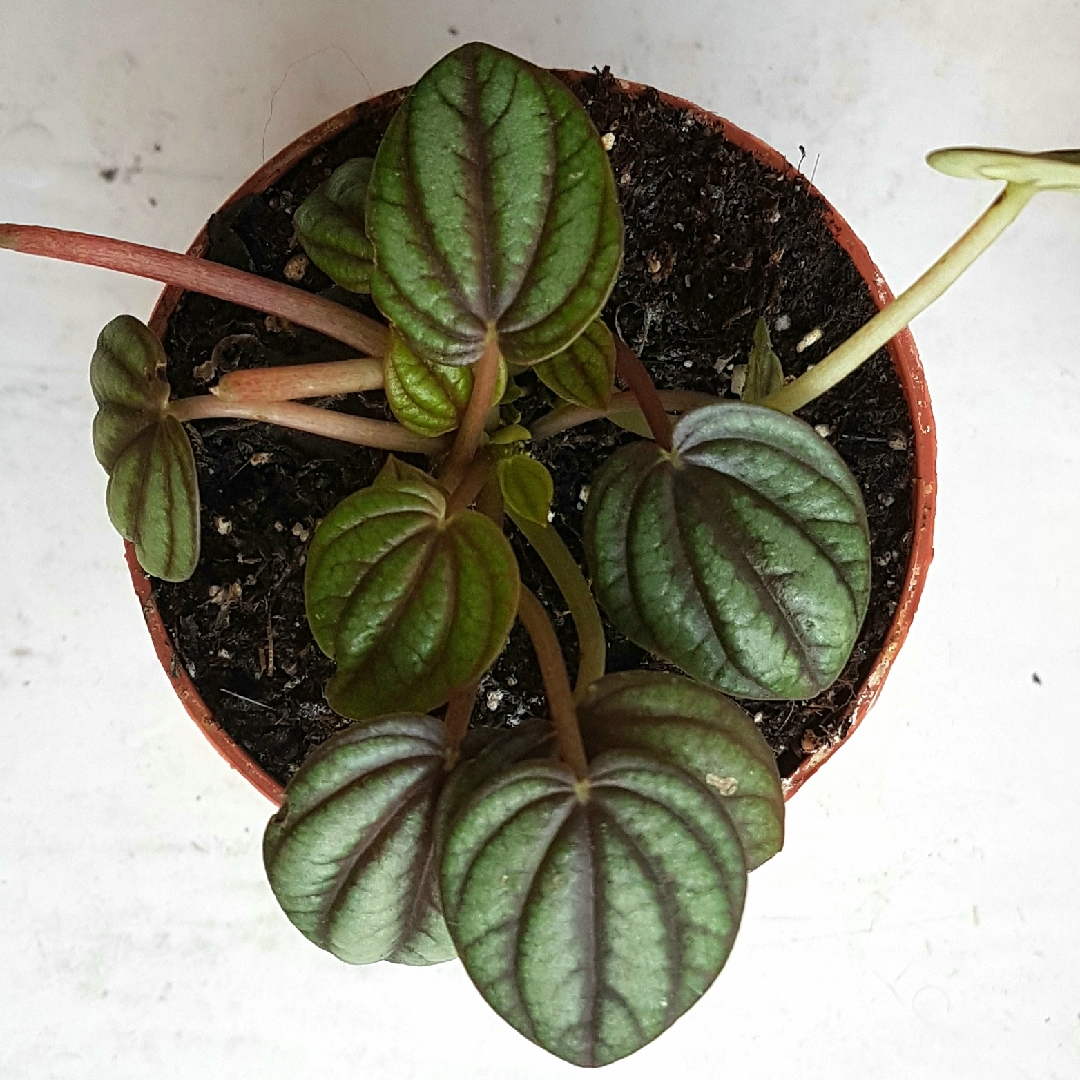
Peperomia 'Piccolo Banda', Peperomia 'Piccolo Banda' in GardenTags plant encyclopedia
Peperomia Piccolo Banda, belongs to the Piperaceae family, Peperomia genus, and Peperomia Albovittata species. It is a relatively new addition to the Peperomia genus. The plant's origin is in the rainforests of South America, which is the origin of many plants in the Peperomia genus. Peperomia Piccolo Banda is also referred to as the radiator.

Peperomia 'Piccolo Banda®' 4" Pot Hello Hello Plants & Garden Supplies
The contrasting colors and veining on the leaves of the Piccolo Banda are remarkably similar in appearance to the Ivy Leaf Peperomia, also known as the Peperomia griseoargentea. You could argue that the indented veins also recall a Peperomia caperata , but with a genus of over 1,500 species, it's no wonder that a few share a few traits from.

good day on Instagram “How cute is this Peperomia Piccolo Banda plant!🍉 The perfect gift for
Is peperomia albovittata rare? The peperomia albovittata is a new, rare cultivar that comes from the Netherlands—though it is certainly increasing in both popularity and production! Since this plant is a hybrid, it goes by many names including Piccolo Banda, Piccolo Peperomia, and Radiator Plant (a common name for Peperomia species).

PEPEROMIA PICCOLO BANDA MINIWATERMELON 12cm / 120mm
Get the complete guide to the beautiful Peperomia Piccolo Banda also known as piccolo banda. Learn care, growth, problems, and propagation from one place!

The Peperomia Piccolo Banda is so cute! 🌱 📷 by flipaflora Share yours with onlinehouseplants 💚
The Peperomia piccolo banda is a gorgeous addition to any home with its striking foliage and low-maintenance care. Whether you're an experienced plant parent or a beginner looking for an easy-care plant, Peperomia piccolo banda is a perfect choice. Just remember to give it enough light and water - and you'll have a happy Peperomia piccolo.
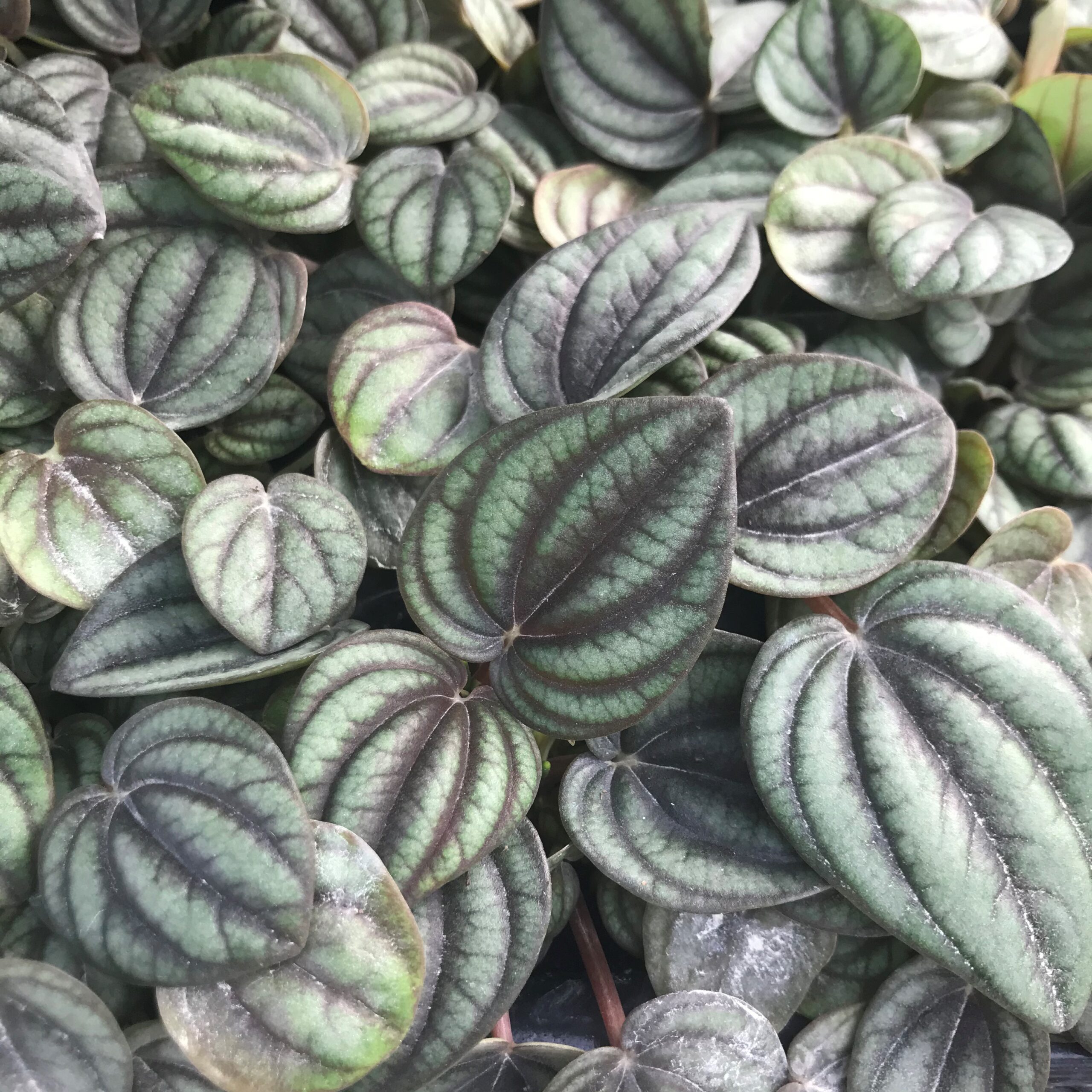
Peperomia 'Piccolo Banda' (4.5" Pot) Little Prince To Go
About Piccolo banda. Did you know Peperomia plants belong to the pepper family, along with black peppercorns? Their fruits and seeds have traveled one of the longest distances ever recorded, over 3000 miles to an island in the middle of the Atlantic ocean, while stuck to a bird's feet! 🦅 They can be easily propagated by leaves which make them super easy to share with friends!
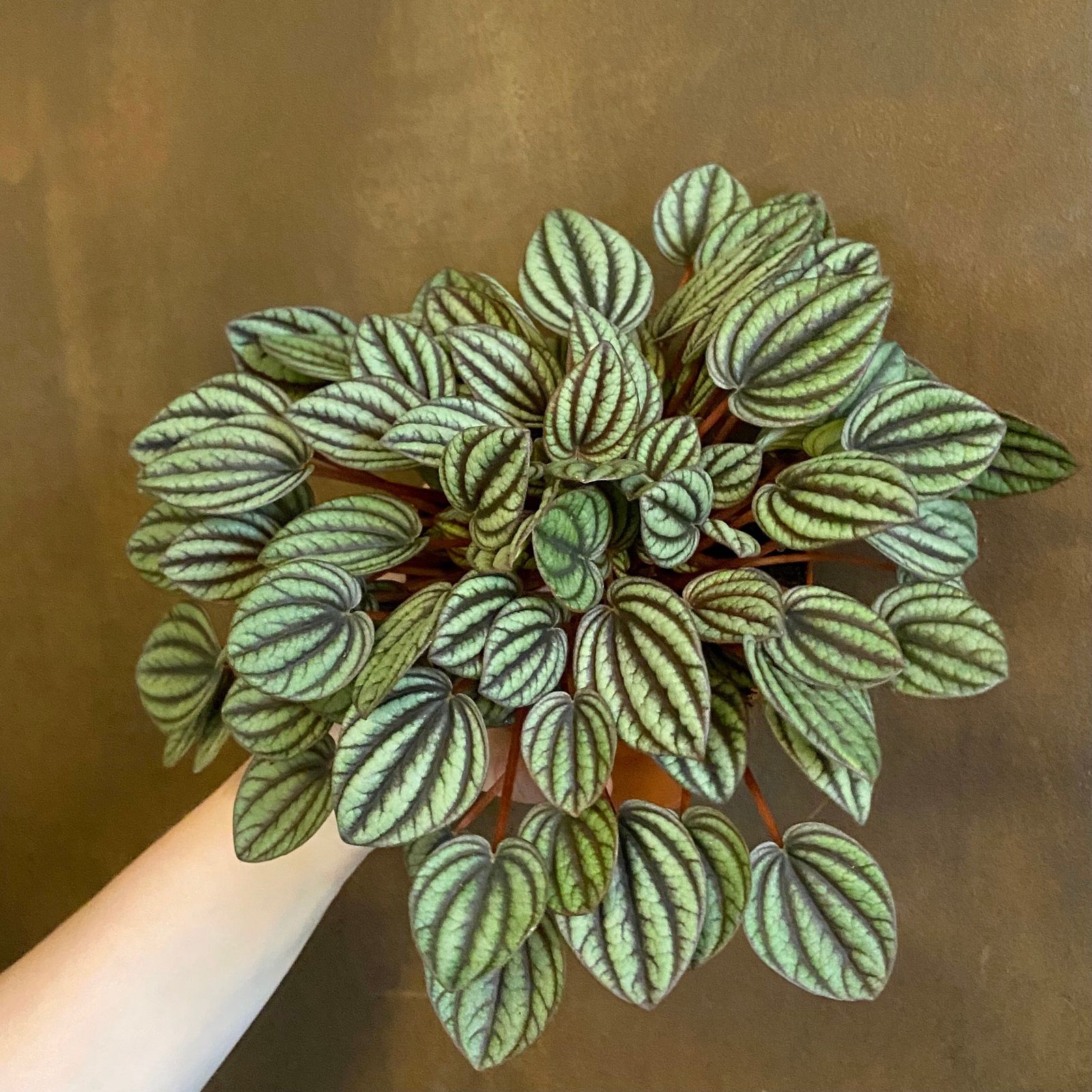
Peperomia ‘Piccolo Banda’ grow urban.
Peperomia 'piccolo banda' is a type of evergreen perennial that belongs to the family Piperaceae. It is native to tropical regions of Latin America, specifically Brazil, and can be found growing in a damp forest understory.. The plant has small, green, heart-shaped leaves with scalloped edges and produces white or pale pink flowers.